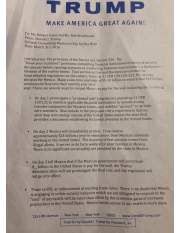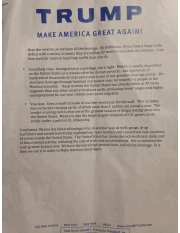Russia blocks UN move to sanction Syria for chemical attacks
Russia’s UN ambassador questioned whether a UN report had provided evidence of President Assad’s chemical weapons attacks
MiddleEastEye: Russia blocked a move by the United Nations on Tuesday to sanction Syria for the government’s alleged use of chemical weapons in the country’s brutal civil war.
Britain and France called for UN sanctions after a UN-led investigation found that President Bashar al-Assad’s forces had carried out at least two chemical attacks, one in 2014 and one in 2015.
Following a closed-door Security Council meeting the Russian ambassador, Vitaly Churkin, said he had “very serious questions” about the findings and suggested the panel should continue its work.
“There are a number of questions which have to be clarified before we accept all the findings of the report,” Churkin said.
Previous reports from the Organisation for the Prohibition of Chemical Weapons (OPCW) had concluded that toxic gases have been used as weapons in Syria’s five-year war, but stopped short of identifying the perpetrators.
The panel of inquiry, known as the Joint Investigative Mechanism (JIM), for the first time pointed the finger of blame at the Assad government for chemical weapons use after years of denial from Damascus.
The British and French ambassadors described the use of chemical weapons against civilians as a war crime, while US ambassador Samantha Power called for quick action to ensure those responsible “pay a price.”
Churkin, however, made clear he was unconvinced by the JIM report.
“There is nobody to sanction in the report,” Churkin said. “It contains no names, no specifics, no fingerprints.”
“Clearly there is a smoking gun. We know that chlorine was most likely used, but there are no fingerprints on the gun,” he said.
The panel found that the Syrian government had dropped chemical weapons on two villages in northwestern Idlib province: Talmenes on 21 April, 2014 and Sarmin on 16 March, 2015.
In both instances, Syrian air force helicopters dropped “a device” on houses that was followed by the “release of a toxic substance,” which in the case of Sarmin matched “the characteristics of chlorine.”
Chlorine use as a weapon is banned under the Chemical Weapons Convention, which Syria joined in 2013, under pressure from Russia, Assad’s ally.
No evidence
Syrian ambassador Bashar Jaafari rejected the findings, saying the panel lacked “physical evidence” to support its conclusions that chlorine barrel-bombs were dropped on civilians.
The report was “totally based on witnesses presented by terrorist armed groups,” Jaafari told reporters.
French ambassador Francois Delattre called for a “quick and strong Security Council response” that would include “imposing sanctions on those who are responsible for these acts.”
The council will be “looking at the imposition of sanctions and some form of accountability within international legal mechanisms,” said British Ambassador Matthew Rycroft.
The report also found that the Islamic State had used mustard gas in an attack on the town of Marea in northern Aleppo province in August 2015.
Human Rights Watch called on the council to refer Syria to the International Criminal Court for war crimes and to urgently impose sanctions.
Britain, France and the United States said such a step remained an option, even though Russia and China blocked ICC referral in 2014.
“Russia and China don’t have a leg to stand on by continuing to obstruct the Security Council on Syria sanctions and ICC referral,” said Louis Charbonneau, UN director at Human Rights Watch.
“The Security Council diminishes its importance if it doesn’t take strong action against demonstrated use of chemical weapons by the Syrian government.”
****
Syria’s ambassador to the United Nations has dismissed as flawed the findings of a UN-mandated investigation blaming Syrian forces for the use of chemical weapons, saying the report is based on “false testimonies.” Per the Iran Project
Last week, a report carried out by the Joint Investigative Mechanism of the UN and the OPCW claimed that Syrian forces had used chlorine in two separate attacks against militants in 2014 and 2015.
The investigation was launched based on the UN Security Council’s Resolution 2235, which called for determining which party used chemical arms in Syria.
Syria rejected the allegations, with Ja’afari saying on Tuesday that the conclusions of the report “lack any physical evidence, whether by samples or attested medical reports that chlorine was used.”
The Syrian diplomat also said the report was “totally based on witnesses presented by terrorist armed groups.”
Russia, which has been backing the Syrian government in its war against the terrorists, also cast doubt on the report.
****
Per the United Nations website:
24 August 2016 – United Nations Secretary-General Ban Ki-moon today submitted a joint UN-Organisation for the Prohibition of Chemical Weapons (OPCW) report to the Security Council outlining in-depth investigation into, as well as the findings, assessments and conclusions of, nine selected cases related to incidents involving the use of chemicals weapons in Syria.
According to a statement issued today by Mr. Ban’s spokesperson, the UN chief is looking forward to the Council’s consideration of the report.
The report will be available publicly shortly thereafter, the statement added.
The methods of work and the investigation of the specific cases are described in the report’s annexes.
According to the statement, the UN chief also expressed appreciation to the Joint Investigative Mechanism’s Leadership Panel and its staff, as well as to the OPCW and the Office for Disarmament Affairs for their continued support to the Mechanism.
He further thanked the Member States of the UN for their assistance to the Mechanism, including financial support.
The joint body, established by the Security Council in August 2015 for a period of one year with a possibility of future extension, is tasked with identifying “individuals, entities, groups, or governments involved in the use of chemicals as weapons, including chlorine or any other toxic chemical,” in Syria, according to the Council, which reiterated that those responsible must be held accountable.
That body differs from the OPCW-UN Joint Mission on the elimination of Syrian chemical weapons, and which was formally established in August 2013. It completed its mandate and wrapped up operations on 30 September 2014. From now on, the OPCW mission in Syria will continue to deal with the destruction of chemical weapon production facilities and clarification of certain aspects of the Syrian initial declaration under the Chemical Weapons Convention.



